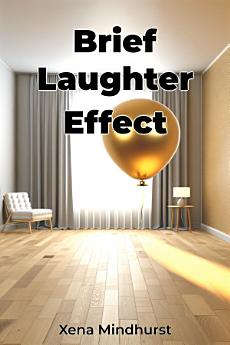Brief Laughter Effect
About this ebook
Central to its thesis is laughter’s dual role as both a biological tool (triggering endorphins and calming the nervous system) and a social glue that strengthens relationships, even in high-pressure environments. The book grounds its insights in relatable examples, such as healthcare workers using brief humor during shifts to lower stress hormones, and brain imaging studies showing how humor activates reward centers.
Unlike generic self-help approaches, it offers structured yet flexible strategies—like tracking “laughter triggers” or using absurdity to reframe frustrations—that fit into busy lives. Chapters progress from explaining laughter’s physiological mechanics to practical techniques for embedding humor into daily routines, workplace dynamics, and personal relationships.
By balancing empirical research with anecdotes, Brief Laughter Effect stands out as a guide that’s both rigorously evidence-based and immediately usable, making it ideal for anyone seeking accessible, science-backed tools to lighten life’s pressures.







